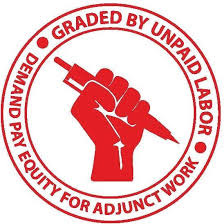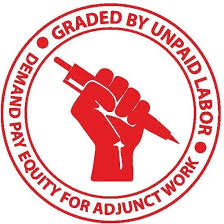Next Time: Chapter 2: Cruel Optimism
[this is a GLOSS on Chapter 2, which has been re-posted in tandem, but also linked here for your convenience.]
*
A Kaleidoscope of Pain
(that’s a great Goth band name, isn’t it?)
I’ve been told that the list of memories flashing by here in the opening of this chapter is either too much or too little. Like, I should either write a whole chapter centering on each of these, or not list them in this kind of relenting litanylike detail. I dunno—to me, this is more realistic than either; it’s very much like how it felt, having my marriage flash before my eyes sitting there in the justice center.
So. More about each of these painful pins in my memory, in order (feel free to skip if you don’t feel like being very sad or incandescently angry today):
I’ve mentioned the pub insult briefly before, in my Popination from Old Chicago:
I wish wholeheartedly, dear readers, that I could remember what my husband said to me, that day. It’d be nice to actually write out the words, see if it was just me: maybe I was too sensitive because drunk, or maybe hormonal, maybe it wasn’t really a gut punching personal insult that they were all laughing at. But I honestly don’t remember one word of what he said. What I do remember is how it felt. And how astonished I was that the table of good men who I thought were my true friends, my family, on my side as brothers in arms always (one of them literally), all turned toward me as one and laughed.
This happened twice: once he had passed out at home with a full pot of beans rendered into a fragrant concrete in the bottom of our best pot. burning on the stovetop, having missed the first half of the show he was in. Why that theatre company continued to cast him after that, I have no idea. He was blackballed a couple shows later, though; after this musical debacle where he showed up too hammered to perform. Was I a heavy drinker myself back then? Yep. Was I embarrassed by my then-husband’s behavior, though? Absolutely. I never lost a job or a relationship because of my consumption. He got fired from a series of jobs for drunkenness, starting in the early days of our relationship and ending when it ended, with him jobless and homeless and without either degree he’d been studying for (and blaming me, of course).
This was a stupid situation in which I was treated like a big ol’ chump. I’m not even mad anymore—it was such a ridiculous and cruel series of soap opera-like events I’m just laughing wryly about it now. I’ve chatted with the woman in question since then, many years later (the three of us had dated for a while but I hadn’t seen her since then, and since my divorce). She apologized for her part in the whole mess, and I honestly had no hard feelings for her. I blame him way more for the harsh way I was treated; she was just along for the ride, and got carried away with the power of it, which I understand, in hindsight. I will say this: I’m glad I had my time in the land of poly, and VERY glad I don’t ever have to deal with that anymore. Yeesh. Polyamory looks fine on paper, but boy is it messy in practice.
I did actually end up writing a whole chapter centering on this event, which makes me wonder if this part reads like good foreshadowing, or if I should cut it from here. Let me know. Anyway the chapter is called ‘Patience and Perseverance,’ after part of the ninja creed from the martial arts school discussed within.
Optimism? I hardly know him…
My major issues with toxic positivity / cruel optimism come to the fore in this chapter especially, though of course I do come back to the problem in many chapters, as it’s a major reason why it’s even possible to exploit 75%* of the population of professors. But the positivity virus makes us stick around. Don’t you love your children? Those college students aren’t full grown adults; they’re your children. Don’t you love them? And then there’s the opposite hatred: o hey that’s so cute that you’re wildly qualified and have so many advanced degrees, experience, and intelligence. Adorable. So here’s three thousand dollars (gross) to pay for all that professional expertise, for the next four months. What do you mean that’s not enough? How entitled. You’re fortunate—if you leave, someone else will be happy to take your place. What are you complaining about? Don’t you love your children?
*
More on false promises in academia:
My story of the English Department’s fuckery here was first a blog post in 2015, to commemorate National Adjunct Walkout Day. I also rendered it into a letter to the Arts & Sciences Dean, who expressed thanks, and that she’d read it. What happened? Crickets. Of course.
National Adjunct Walkout Day was held on Feb 25, 2015. I didn’t walk out of every school where I was teaching at the time (I think I was working at 3 universities at the time), but I did assign an essay for all of my writing courses, on the topic of adjuncting. I’m pretty sure that a couple of the schools weren’t super happy with me, but I thought I was doing something important. But it never took, and none of the universities I’ve ever adjuncted for had unions for their contingency. NAWD never happened again. I’m pretty sure it’s because we all know if we ‘walked out,’ we’d be summarily dismissed, not hired back the next semester, and about a hundred and fifty PhD holders with much starrier eyes would flock to every open position, waving their credentials like an infomercial audience.
O jeez—look at this article, back in 2015, reporting on NAWD. Deemed a success? How ya figure?
Metal Academia
I keep wanting to try and finish Berlant’s book by this name (Cruel Optimism), as the concept is so fascinating (and important), but DANG is it an academic style of writing and I …just. Look, I’m an academic and I love me some research and theory and I even get a kick out of jargon, as an amateur linguist and word nerd, but guhhhh. Seriously. Try it yourself—you’ll see what I mean. I am inspired, though, to put the book back on my active tbr stack. On the bottom.
SIDE NOTE about the duet of Andrew Kay articles in today’s mini-biblio: I couldn’t decide which of these essays to include today, so I added both. They do complement each other quite a bit—It’s almost like they’re a diptych of sorts. And they’re both part memoir, part personal essay centering around the adjunct plight (particularly adjuncts in the humanities), and are both so damn well written that they literally piss me off. No, really: my writing coach Herb shared these with me right at the beginning of my process into this book, and I almost gave it up in despair a la Don Music because of them.
*
Oh, hey. Check this out, as a conclusion of sorts, that I came across today as I prepare my next round of submissions. An excerpt from my book proposal:
Next Time appeals to a similar audience as the above selections--it exposes a major systemic issue, but within the relatable context of my personal story. It functions as not only a gripping tale of a person who has led a fascinating life, but an exposé of the deep rot that’s going on in higher education. It can even be said to be a self-help narrative of sorts: one of my beta readers remarked, “You may just save lives with this book, you know,” and I think they may be right.
And check out this cheeky end paragraph. I’m a keep it; don’t you think?
Thank you for considering Next Time—I appreciate your time and attention, and hope to hear from you soon. And if I don’t? Well, maybe Next Time.
Aren’t I just the rapscallion, though? I am, I know.
*
TODAY’S BIBLIOGRAPHY:
Berlant, Lauren. A Cruel Optimism. Duke University Press, 2011.
Ehrenreich, Barbara. Bright-Sided. Picador, 2009.
Kay, Andrew. “Academe’s Extinction Event,” The Chronicle of Higher Education, May 2019. (Link)
Kay, Andrew. “Pilgrim at Tinder Creek,” The Point, February 2017, Issue 13. (Link)
Sano-Franchini, Jennifer. “Co-Dependent Emotions on the Market,” CCC 68:1, September 2016. Available: https://www.jstor.org/stable/44783529




